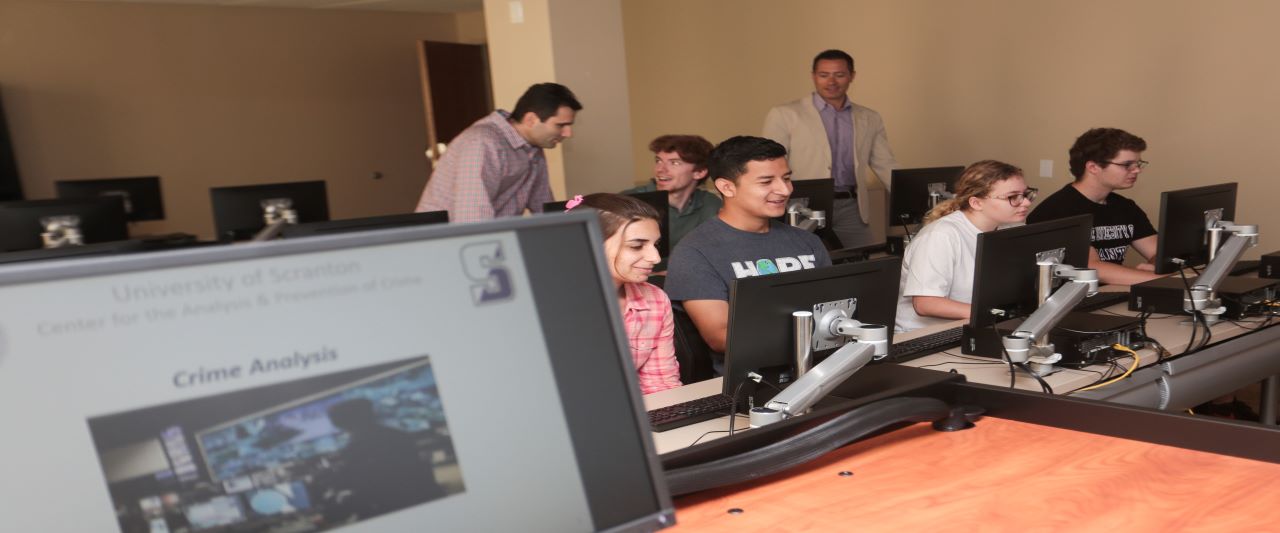Criminal Justice
Program Overview
The criminal justice major provides a solid knowledge base in three principle sub-fields -- law enforcement, courts, and corrections -- as well as an understanding of the various causes of crime.
Students learn to think critically about issues related to the justice system in the United States and those around the world.
Our professors foster students’ writing and verbal communication skills relative to the field. The program also:
- promotes the application of theoretical knowledge to real-world situations
- encourages insight into social justice issues in the context of the criminal justice system
- promotes information literacy for all majors
A focus on social justice issues allows students to use their knowledge to become men and women for others, in the vision of Jesuit tradition.
The curriculum also prepares students for government and private sector employment in criminal justice and serves as an excellent foundation for many graduate programs, such as criminal justice, counseling, social work, sociology, and law.
Students also have access to hands-on programming and research opportunities through the University's Center for the Analysis and Prevention of Crime.
Curriculum
The bachelor's program requires 121 credits. The curriculum consists of general education courses, free electives, major electives, major requirements, and cognate courses. It is common for students to take course in both sociology and criminal justice to fulfill certain requirements.
Required Courses and Electives
Criminal Justice majors must take the following major courses:
- Introduction to Criminal Justice
- Criminology
- American Policing
- The American Court System
- American Corrections
- Law and Society
- Independent Study in criminal justice OR a capstone course in criminal justice OR an internship
Students must also take five major electives. Some electives that have been offered in the past are:
- White-Collar Crime
- Crime and Criminal Justice in the Media
- Criminal Justice Management
- The Bill of Rights and Criminal Justice
- Victimology
Minors
Criminal Justice -- requires 18 credits. There are six required courses.
Criminology -- requires 18 credits. There are five required courses and the remaining 3 credits can be fulfilled by any of the following elective courses, or by a course, research experience, or internship experience approved by the department chairperson.
Crime Analysis -- requires 23 credits. There are eight required courses and the remaining three credits can be fulfilled by any of the following elective courses, or by a course, research experience, or internship experience approved by the department chairperson.
Cybercrime Investigation And Cybersecurity Minor - requires 18 credits. There are twelve required courses. 6 credits in cybercrime investigations, 6 credits in cybersecurity, and 6 elective credits, which will allow students to focus on the investigative aspects or the cybersecurity element of the field.








